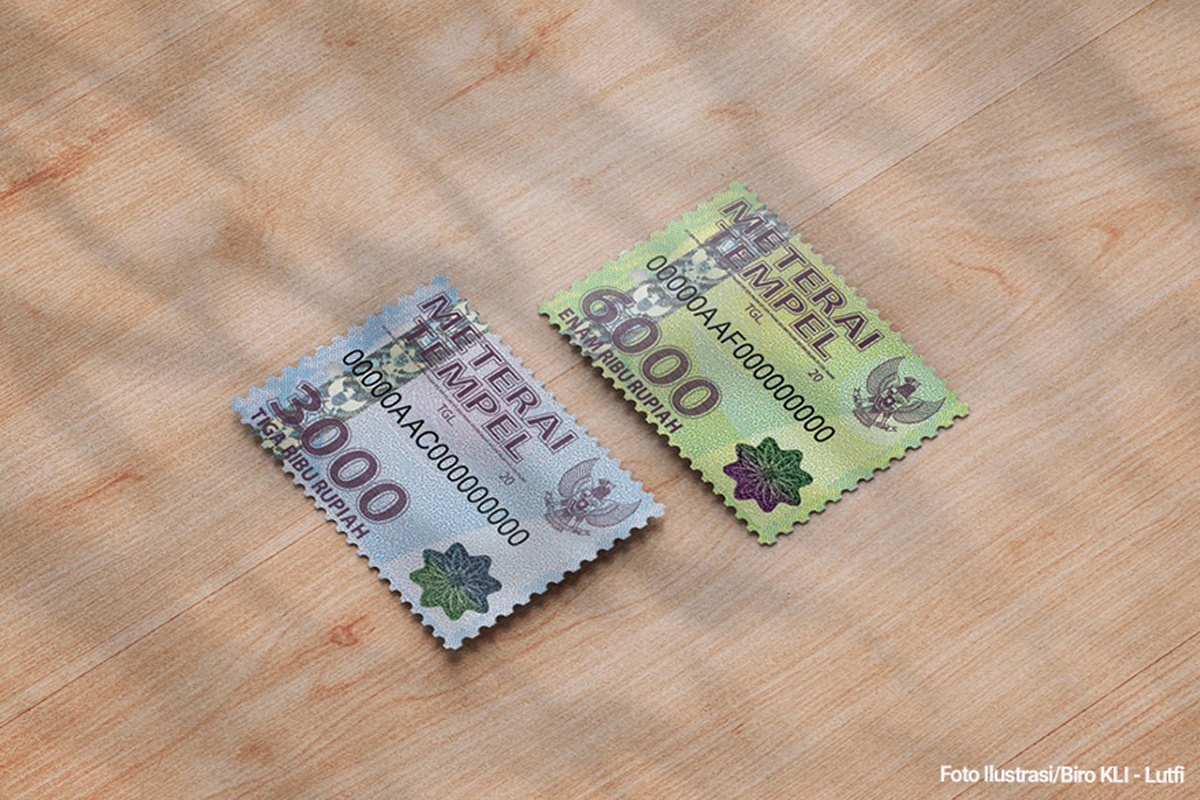New Stamp Duty Law Released, Here Are the Details
Wednesday, 04 November 2020

The government officially passed the Stamp Duty Law (UU) number 10 of 2020, on 26 October 2020. With this ratification, the previous provision stipulated on stamp duty, namely Law number 13 of 1985, which was considered no longer relevant to current needs, was officially revoked.
This ratification was carried out after the House of Representatives (DPR) approved the ratification of the Stamp Duty Bill into law on 29 September 2020. Although it has been passed, this law is only effective from 1 January 2021.
In general, there are several adjustments have been made through this new regulation. First, the nominal amount of stamp duty or also known as the tax on legal documents now uses a single tariff of IDR 10,000, which is different from the previous tariffs of IDR 3,000 and IDR 6,000.
Read: Pink Tax, Gender-Based Pricing Discrimination
In addition, the new regulation only requires the use of stamp duty for documents that have a nominal value of IDR 5 million and above. In fact, previously the document limit required to use stamp duty was at least IDR 1 million.
The amount of tariffs and minimum limits on the value of the document can be changed to adjust the economic condition and income level of the community. The indicators that will be used to compile the formula o change include the rate of economic growth, inflation, investment developments, state revenue, and people's purchasing power.
Amendments can be made by issuing a Government Regulation (PP) after consulting with the DPR.
Electronic Stamp Duty
To support the needs of digital businesses, the latest law also regulates the existence of electronic stamps and other forms of stamps, apart from the type of post-stamp or old stamp that has been commonly used.
Unlike old stamp, the electronic stamp will contain unique codes accompanied by specific descriptions. However, a detailed explanation of the unique codes and certain information will be further regulated in the Minister of Finance Regulation (PMK).
With this provision, the government hopes that state revenue from digital transactions through electronic stamp duty will be optimal. The use of electronic stamp duty will encourage the application of the paperless habit which can be an option for the business world to be more efficient.
Read: Minister of Finance Hands Over Tax Holiday Granting Authority to BKPM
Specifically, there are several other provisions that are important to know in this New Stamp Duty law. Among them are other types of documents that are subject to stamp duty, other than those valued at IDR 5 million and above, such as:
- Letter of Agreement, certificate, written statements or other similar documents and their counterparts
- Notarial deeds, including executorial deeds (grosse akta), copies, and excerpts;
- Deeds drawn up by Land Officials (PPAT) including their copies and excerpts;
- Commercial papers under any name and in any form;
- Documents evidencing transaction of commercial papers, including future contracts under any name and in any form
- Auction documents in the form of excerpts of auction minutes, minuta minutes of auction, copies of auction minutes and grosse of auction minutes
- Other documents stipulated through Government Regulation
Meanwhile, this regulation also emphasizes a number of documents that are not obliged to be subject to Stamp Duty, such as:
- Documents related to the movement of humans and goods
- All kinds of academic certificates (including diploma)
- Receipts for payment of salaries, pension funds, allowances and other payments related to employment
- Receipts for state income from the state treasury, regional government treasuries, banks and other agencies mandated by the state under the prevailing laws;
- Receipts for all kinds of taxes and other income of a similar nature from the state treasury,
- Receipts for funds made for the internal purposes of an organization;
- Documents stating money savings or commercial papers in banks, cooperatives, and other institutions acting in money depositories
- Pawn agreement letter ( Surat Bukti Gadai)
- Documents specifying profit sharing, interest, or yield on commercial papers
- Documents issued by the Central Bank of Indonesia to implement its monetary policies


